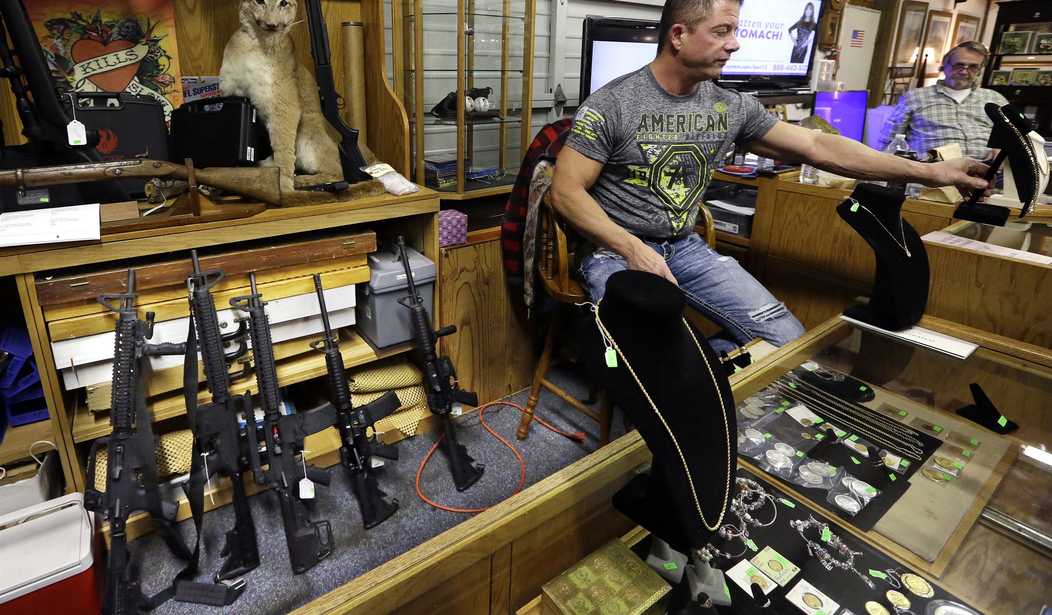The first time the Supreme Court defended the Second Amendment, it overturned a Washington, D.C., law that made it a crime to keep any sort of accessible and operable firearm in the home for self-defense. Two years later, the court struck down a Chicago law that went almost as far, banning possession of handguns within the city limits.
Last week, the court accepted a case involving another extreme example of gun control: a law that prohibits New Yorkers from taking their legally owned handguns with them when they travel outside the city. This is only the third time in more than a decade that the justices have grappled with the question of which firearm restrictions are consistent with the Second Amendment, and the history of the case shows why that reckoning is overdue.
Most New York City residents can legally own handguns only by obtaining a license that requires them to keep the weapons at home. The sole exception is for trips to one of the seven target-shooting ranges within the city, when the firearms have to be unloaded and locked in a container separate from the ammunition.
Three New Yorkers, joined by the New York State Rifle and Pistol Association, are challenging that rule, which they say unconstitutionally interferes with their right to keep guns for self-defense and to hone the skills required for that purpose. One of the plaintiffs would like to take his handgun to a second home in Delaware County, and all three want the freedom to bring their firearms to ranges and shooting competitions outside the city.
The only public safety rationale the city has offered for stopping them is that they might be tempted to use the guns in "stressful situations." As the gun owners note in their brief seeking Supreme Court review, "the City put forth no empirical evidence that transporting an unloaded handgun, locked in a container separate from its ammunition, poses a meaningful risk to public safety."
Recommended
Even if it did, New York's restrictions tend to magnify the supposed danger by forcing gun owners to use ranges within the city when alternatives in other jurisdictions are closer and more accessible. They therefore spend more time traveling with their guns on New York's streets than they otherwise would.
The government's half-baked excuse nevertheless was enough to persuade a federal judge and the U.S. Court of Appeals for the 2nd Circuit that the ban on taking handguns out of the city is consistent with the constitutional right to keep and bear arms. Both concluded that New York's transparently irrational restrictions survived "intermediate scrutiny," meaning they are "substantially related to the achievement of an important governmental interest."
That sort of reasoning epitomizes the inappropriately deferential approach that many federal courts continue to take in Second Amendment cases. If the government can articulate a reason for restricting gun rights, no matter how implausible, that is usually enough to sustain the law.
"The City's transport ban lacks even a rational basis, much less the heightened showing necessary to justify burdens on constitutional rights," the plaintiffs note. The need to curtail this rampant disrespect for the Second Amendment is the reason this case is important, even though it involves a law that the plaintiffs describe as "an extreme outlier" and a "one-of-a-kind prohibition."
For too long, the Supreme Court has tolerated a form of casual judicial review in gun cases that would never fly in the context of other constitutional rights. The justices have passed up one opportunity after another to clarify the level of scrutiny that should be applied to gun control laws, the constitutionality of bans on arbitrary categories of firearms or magazines and the extent to which the Second Amendment applies outside the home.
This case will not resolve all of those issues. But it is a first step toward enforcing the Court's belated recognition that the Second Amendment imposes meaningful limits on legislators.

























Join the conversation as a VIP Member